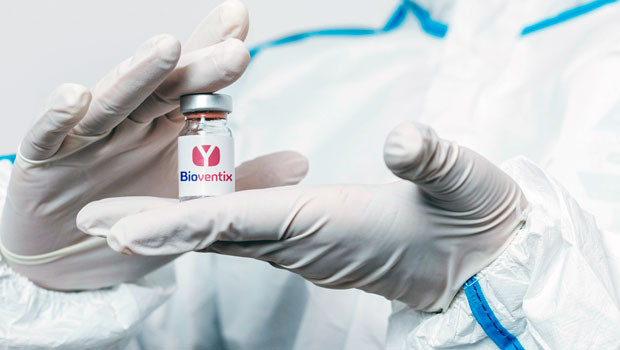BioVentix reports year of growth, warns of geopolitical risks

Bioventix
3,725.00p
10:15 21/11/24
BioVentix, a UK-based developer of high-affinity monoclonal antibodies for clinical diagnostics, reported a 6% improvement in full-year revenue on Monday, to £13.6m, up from £12.82m in the prior year.
FTSE AIM 100
3,514.20
10:40 21/11/24
FTSE AIM All-Share
724.11
10:40 21/11/24
Pharmaceuticals & Biotechnology
19,348.22
10:34 21/11/24
The AIM-traded firm said profit before tax increased 5% over the 12 months ended 30 June, to £10.6m, while cash reserves stood at £6m at year-end, compared to £5.7m in the prior period.
It declared a second interim dividend of 87p per share, bringing the total dividend for the year to 155p per share, slightly higher than the 152p per share declared in 2023.
The second interim dividend was scheduled for payment on 21 November.
BioVentix said its most significant revenue stream continued to be its vitamin D antibody, vitD3.5H10, which generated £5.9m in revenue, marking a 1% increase as the global in vitro diagnostics (IVD) market matured.
Other key antibodies showed mixed performance, with strong growth for biotin-related products - up 35% - but declines in testosterone and progesterone antibodies, down 29% and 15%, respectively.
The company addressed a historical error where a customer overpaid troponin royalties, adjusting revenue downward by £327,000 for the year.
Despite that, troponin royalties still increased 3% year-on-year to £1.45m.
Additionally, BioVentix highlighted that Siemens Healthineers received FDA approval for a revised troponin assay label, which was expected to drive further assay use and royalties.
In China, BioVentix's antibody shipments and royalty revenues increased due to new regulatory approvals.
However, the company noted that geopolitical factors and a trend toward “on-shoring” could pose challenges in the long term.
The company said it was also advancing its research into Tau antibodies for Alzheimer’s disease diagnostics.
BioVentix said its partnership with the University of Gothenburg and major IVD companies had started generating modest revenues, indicating potential for commercial applications.
The company said it was exploring other innovative projects, including industrial pollution biomonitoring and sewage contamination detection.
Its board said it remained committed to its strategy of leveraging its SMA technology while incorporating new methodologies.
The firm also announced that long-serving director Nick McCooke would step down, with plans to appoint a new independent non-executive director.
BioVentix said it remained optimistic about its growth prospects, focusing on maintaining its core technology strengths while expanding into new diagnostic markets.
“We are pleased with our financial results for the year which we believe reflect steady growth in the use of our established products in more mature diagnostic markets,” the BioVentix board said in its statement.
“We remain very encouraged by the very early signs of success for our Tau/Alzheimer's antibodies and we look forward to more progress into the future.”
At 0939 GMT, shares in BioVentix were down 6.48% at 3,390p.
Reporting by Josh White for Sharecast.com.